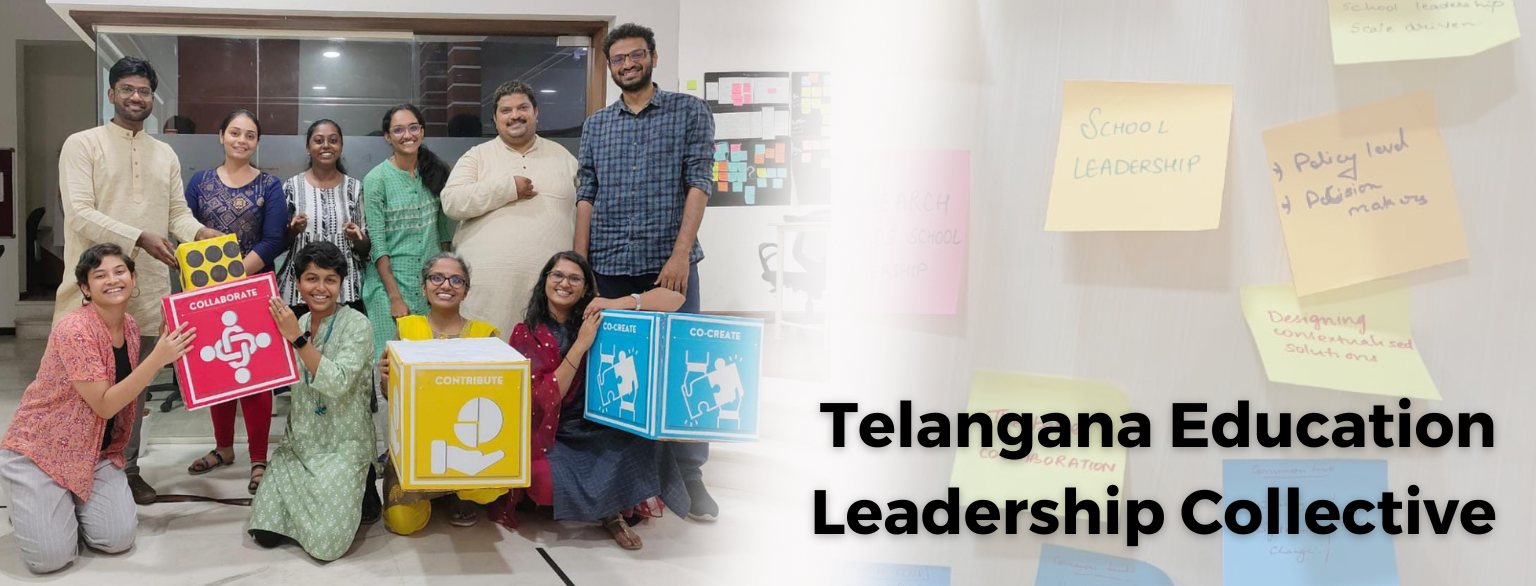
Steps to Orchestrate Collective Action
Find out how did we lay the roadmap for
Telangana Education Collective
The four organisations worked with a set of principles (highlighted here and here) in order to collectively orchestrate the way forward. We hope this is able to serve as a template for those looking to orchestrate similar collective action[s], leading to accelerated progress and prosperity for the communities they serve.
Step 1 – Get to Know Each Other: the Team and the Organisation

Achieving great outcomes is possible through a great team. And such a team is built on trust through honesty and vulnerability. A Life Maps exercise was an opportunity to hear each other’s life stories – significant incidents that have shaped us and also thoughts/situations which triggered all of us to work in education, and especially education leadership.

We identified the actions and beliefs which are common across all four organisations, along with activities and approaches that are specific to each organisation.

|
Common Links
|
Differentiators
|
|---|---|
|
Research/Evidence based actions
|
SLATE and STEP Program
|
|
Scale thinking
|
Understanding School Leadership context in Puducherry and Tamil Nadu
|
|
Policy level impact
|
Understanding School Leadership context in Puducherry and Tamil Nadu
|
|
Contextualised solutions
|
Approach in implementation of programs - FLN fridays (eg)
|
|
Belief in collaboration
|
|
|
Capacity Building (Train the trainer)
|
Step 2 – Laying Down Collective’s Aspirations
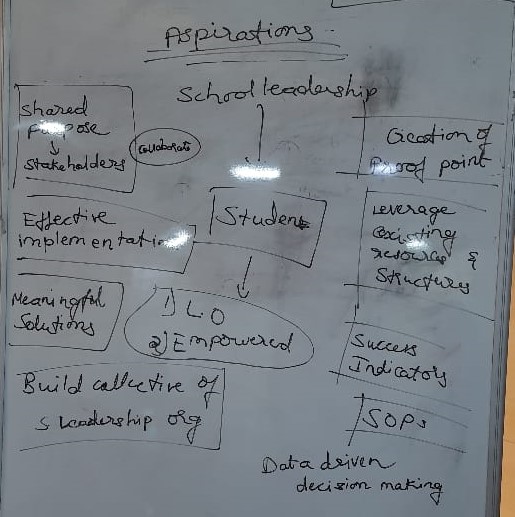
This exercise involved a lot of discussions and debates. We laid down our individual aspirations [for the collective] and then deliberated on each one, together. We were able to close down on the following:
- Improving student learning outcomes
- Ensuring school leadership is the focal point of all our conversations in Telangana
- Creating a shared vision across all stakeholders – starting from policy makers to actual implementers (education leaders) – building collaboration within all involved stakeholders
- Leveraging existing resources and structures in the state
- Creating proof points – making Telangana a model state for School Leadership (stories, SoP, impact as success indicators)
- Shifting focus from ‘what framework’ to ‘how do I use these tools’ for effective implementation of education change programs
- Building a collective of School Leadership orgs in the state
- Keeping momentum up and increase buy in bureaucracy (formal MoU)
This exercise also helped us identify and acknowledge the likely roadblocks in the journey towards the aspirations. These included likely change in priorities at state, organisation level, knowledge/ skill gaps within the ecosystem, resource mobilisation in the Collective, among a few others.
Step 3 – Drawing a Collective Vision
A Vision Board Activity was the step forward as we put our aspirations, current priorities into a vision complete with words and numbers!
The team divided into two groups constructed their vision statement based on the following prompts
- Who are the programs for?
- What are our hopes and dreams for them?
- With whom are we designing ?
- What problems are we solving ?
- What indicates the success of our programs?/What does win mean to us?
Later the teams came together, discussed and drew the final vision statement for TELC.
Telangana Education Collective envisions empowered education leaders driving continuous school improvement for increased student outcomes
We articulated the vision in numbers as the Point of Game (PoG). We again undertook the previous exercise – drew it in two groups and then came together to deliberate and finalise.
Our PoG for this year is
1 Lakh micro-improvement projects triggered
We also decided to revisit the vision statement and POG after a quarter. This was done in order to allow for opportunities to identify what has worked well and what challenges we will have encountered. This will help us gain insights into effective approaches and areas that require improvement.
Step 4 – Drawing individual responsibilities

The next step was to identify and commit what will the four organisations do, individually, in order to realise the vision in the next one year.
We went over the following details to arrive at the commitments:
- Configuration of state team
- Current and required team sizes, nature of workplace (on field/ remote), skill sets, time estimation
- Budget
- Expertise of each organisation and individual team members
Each organisation will lead the discussions and decision-making processes while bringing their expertise to the table, in service to the Collective’s vision:
- Alokit, the context-aware partner, will support in building the collective’s understanding of the need and designing contextual solutions along with a peek into school leadership spaces.
- Mantra4Change will focus on school transformation and empowering district level sectoral officers.
- ShikshaLokam will support the collective by co-creating solutions, being the tech advisor and orchestrating scalable programs.
- Vidhya Vidhai will leverage their working model from nearby states and help build research-based solutions.
Step 5 – Setting up Structures and processes
The discussion finally moved into figuring out how we will work together, the scenarios that might arise in future. We preempted a few scenarios, went through the case studies, everyone added their views and provided solutions for the problems.
Do’s
- Communicating → document internally and externally
- Reflecting, planning, acting
- Holding on to the narrative of education leadership
- Being too rigid to our approach and roles
- Drifting away from the Vision
- Prioritising self (org/individual) over the collective
Peripherals
This exercise will look different for different missions and its aspirations. We were able to achieve what we had set out to, because all the organisations knew each other beforehand having worked together in the past. Everyone set aside their individual priorities and operated with the intention to orchestrate collective action to drive systemic education transformation in Telangana.

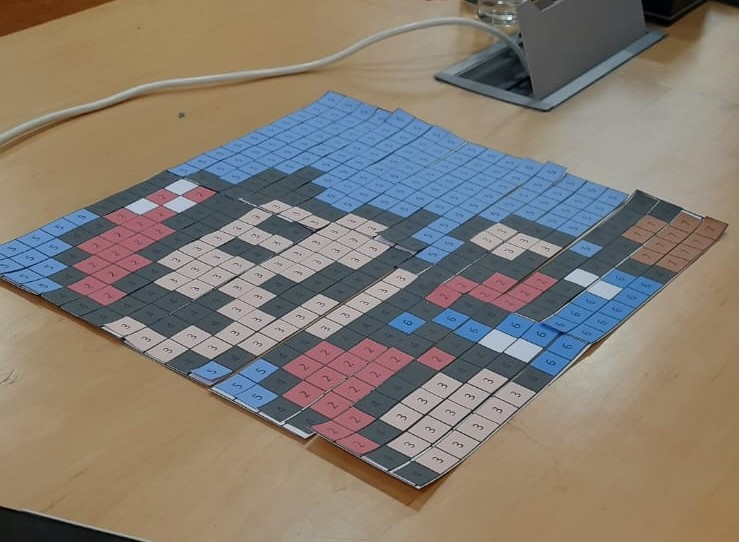
We also ensured that the two days were fun by including energisers and games throughout the day, and eating all meals together. The Punjab Education Collective’s leaders made time to share how they had orchestrated change in Punjab and the lessons we can apply in Telangana. In order to get the ball rolling, the Telangana Collective team also spent time to design two programs and defined responsibilities with timelines set for each organisation.
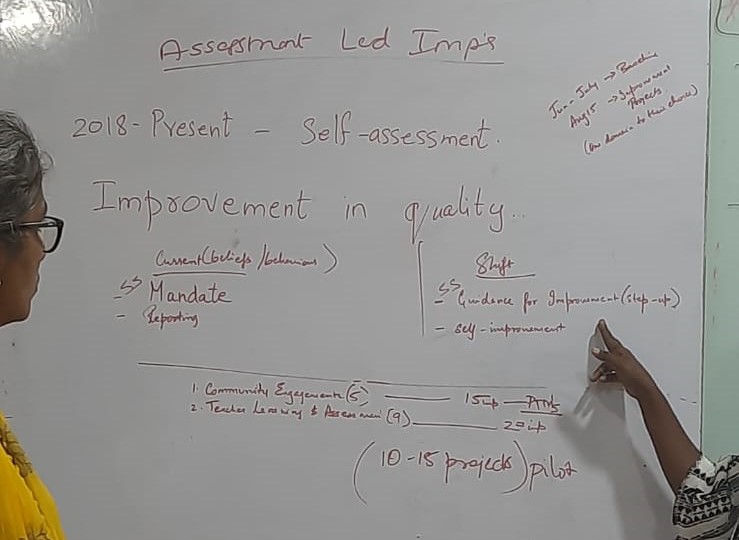
Recently, we undertook the same exercises with more partners, to orchestrate collective action in the states of Karnataka and Orissa. We are excited to see how together, with the education ecosystem, we can address complex problems in different geographies. And inch forward to provide enriching learning experience to all students in India.

Meet the Author

Yogitha Pelluri
Yogitha is a Program and Design Lead at ShikshaLokam, collaborating with different states and tailoring programs to meet their specific needs. In her free time, she loves reading books on psychology and learning from them. Her ultimate goal is to understand people as easily as she reads a captivating book.She holds a profound connection to the concept of providing equitable access to quality education for all. Continuously seeking new approaches, she experiments and discovers what works best for her. Personally, she enjoys engaging in deep conversations about life, love, and everything in between.
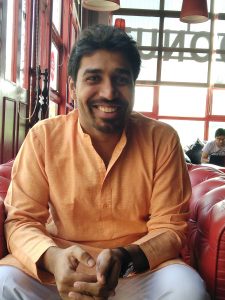
Luv Kumar
Having fallen in love with stories in his childhood, Luv makes his living as a storyteller. He strongly believes in the power of stories to make this world a better place. Luv currently manages communications at ShikshaLokam to drive collective action for enabling education leadership. He is a Teach for India Alum and has also worked with non profit education startups & media agencies in the past

Yogitha Pelluri
Yogitha is a Program and Design Lead at ShikshaLokam, collaborating with different states and tailoring programs to meet their specific needs. In her free time, she loves reading books on psychology and learning from them. Her ultimate goal is to understand people as easily as she reads a captivating book.She holds a profound connection to the concept of providing equitable access to quality education for all. Continuously seeking new approaches, she experiments and discovers what works best for her. Personally, she enjoys engaging in deep conversations about life, love, and everything in between.
